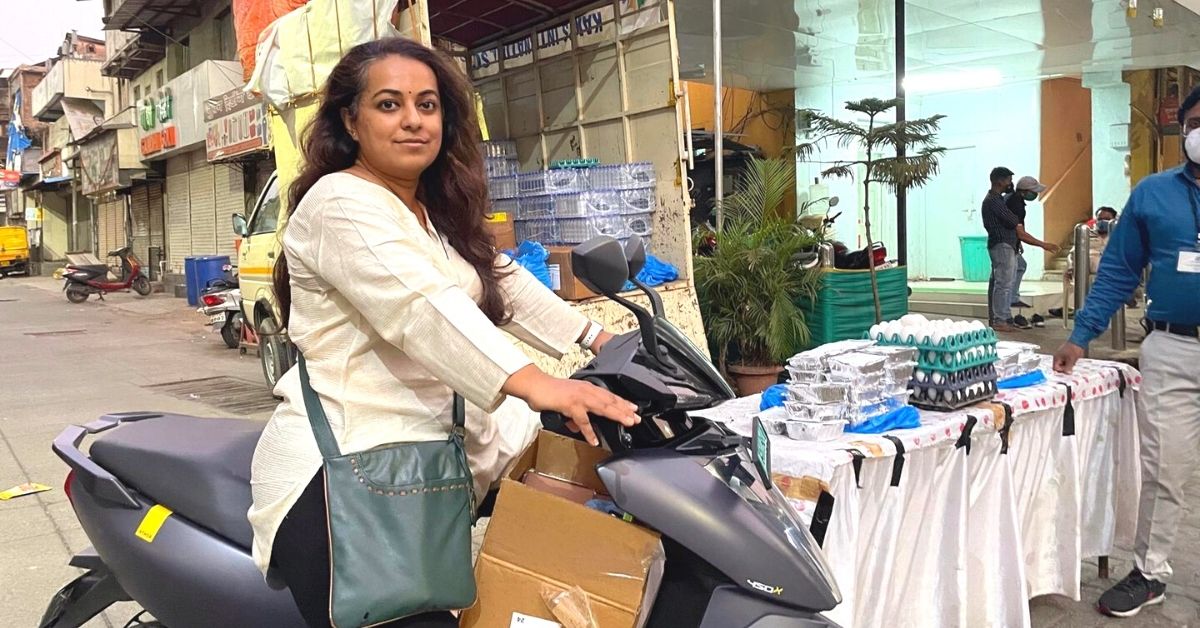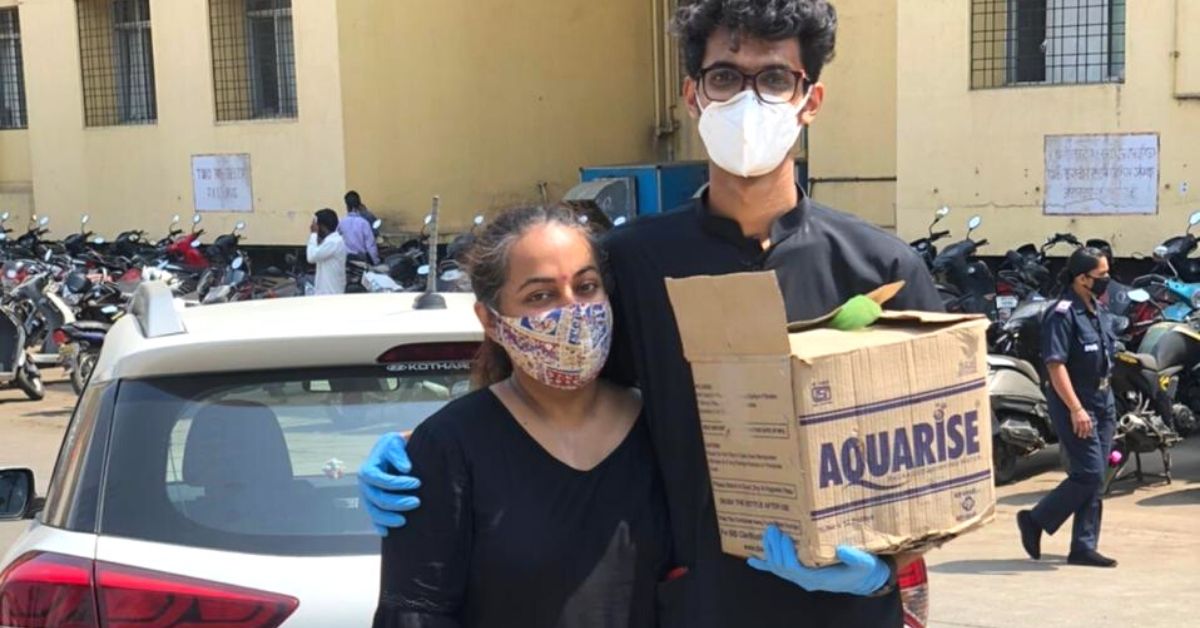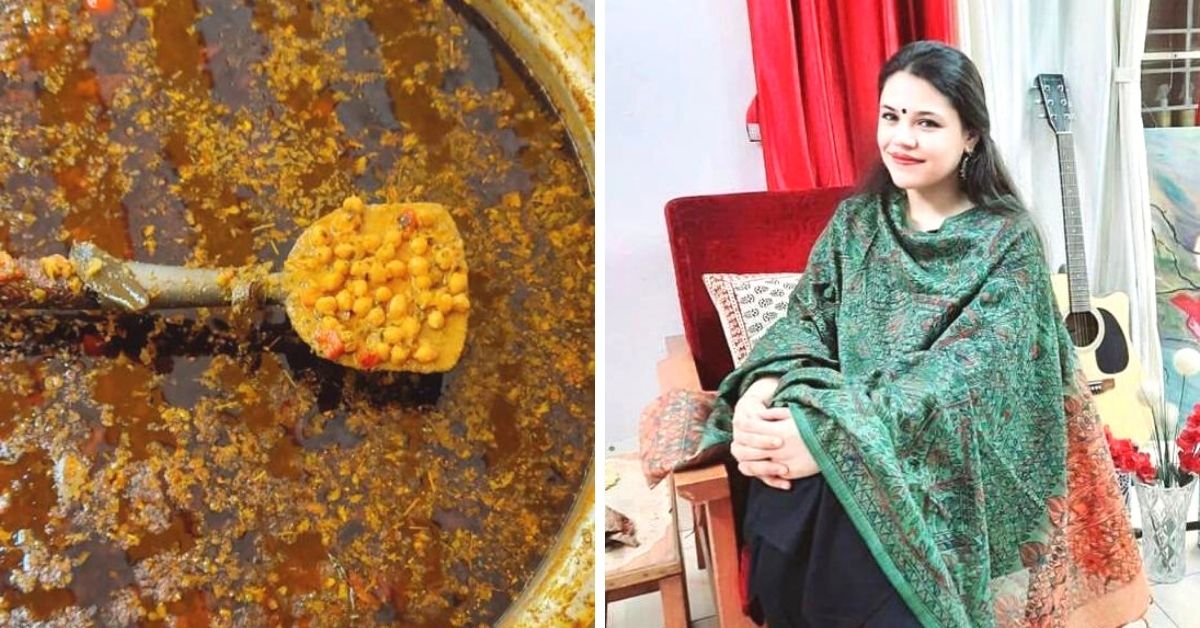The Needy, Police, Sex Workers & More: Pune Woman Gives 7000 Free Meals/Day Amid Covid
Pune-based Aakansha Sadekar runs the Puroshottam Malati Foundation and has been feeding police personnel, sex workers, street dwellers and more in and around the city amid the second wave of coronavirus

As a medical intern at Kashibai Navale Hospital and Medical College, Pune’s Soham Sadekar soon became privy to what a luxury home-cooked food is. Long working hours and only junk food at his disposal made matters worse.
In November 2020, Soham’s sister, Aakansha, decided to visit him every day with piping hot homemade food. As Soham shared his meals with friends, the food gained more popularity.
“The quantity of the meal was adequate enough to meet both lunch and dinner requirements. But it fell short when shared with Soham’s friends. So I started delivering tiffins for ten others. The word spread, and within a month, I was delivering 100 meals to the campus,” Aakansha, a petroleum engineer and consultant in the oil and petroleum industry, tells The Better India.
But soon, in early April, COVID-19 cases surged, and the state government announced restrictions to curb their spread. Aakansha, an active Twitter user, came across a tweet from a person venting his disappointment at being unable to have food after a 12-hour long shift. “The person could not order food as it was past deadline. I offered him food as I was already preparing for 100. He accepted,” says the 32-year-old.

The tweet went viral, and since then, Aakansha has scaled up delivery to provide 5,000 to 7,000 meals a day to sex workers, street dwellers, police personnel, and others from all corners of the city. The number of meals served has reached over 80,000, and continues to increase.
A never-ending flow of requests
“The requests kept coming in, and I could not deny them,” she recalls, adding that once she crossed orders of 100 meals a day, her home kitchen fell short.
“I started looking for a restaurant kitchen set up to cook huge quantities of meals. I knocked on the doors of food joints that were closed due to COVID-19 restrictions but still had staff living in them. I convinced them to share their facilities and help me cook the meals. I managed to rope in three food joints,” Aakansha adds.
“Once I started delivering meals across the city, the police started stopping me and inquiring about my purpose of venturing out of the house during a pandemic. I had to convince them each time. During such interactions, they informed me about street dwellers who were going without food for days. I started providing meals to them as well,” she says. She also learned that the police could not always access food during duty. Hence, she started providing meals for them too.
One day around the last week of April, she reached Shukrawar Peth police chowky to distribute food packets where she came across Jyoti Nagappa Kattipani, a sex worker from the Budhwar Peth neighbourhood.
“Jyoti talked to me about the grievances of the community, and told me how they were struggling to survive as all their earnings had stopped. Hence, I started offering food to them,” Aakansha says.

Jyoti says that Aakansha has come to their rescue during these trying times. “During the first lockdown in 2020, help came with ration kits and meals. However, the aid dwindled as lockdown eased. No help arrived in the second wave. I requested Aakansha to help, as women here had no salt, grocery or even oil to cook meals,” she adds.
Jyoti says that Aakansha supplies three meals a day to about 2,500 persons. “There are many sex workers who are out of jobs, as well as elderly who cannot fend for themselves. Thanks to Aakansha, women and children are having healthy meals, even occasional feasts of gulab jamun, biryani and vada pav,” she adds.
Jyoti’s husband, Sunil Jadhav, says he helps Aakansha deliver food packets in the Katraj area.
‘Empathy gives me strength’
Aakansha, with her friend Akansha Mathur Sharma from Gujarat, has recently set up a Purushottam Malati Foundation to seek donations to meet the expenses of ever-increasing meals to be served.
Sharma, a content writer by profession, says there has been an increase of around 300-400 meals a day. “The numbers increase exponentially, as we do not cater to individuals, but families or an entire community at large. We do not charge any money, spend from our pockets for the meals, and request local vendors to donate milk, eggs and other items. Each meal costs Rs 40, and we are struggling with finances. We are seeking donations and have raised Rs 1 lakh so far. Our goal is to receive Rs 15 lakh,” she adds.
Sharma also handles the backend, which involves managing social media accounts, fixing the vendors and bringing new collaborations.

Aakansha says her day starts around 9 am when she starts receiving calls and messages for orders. She makes a list and starts coordinating with the kitchens. “The menu changes every day. We prepare the food during the day. Deliveries begin by 5 pm, and continue until 10 pm,” she adds.
She says she spends most of her time on the phone, juggling work and her new initiative. “I have a power bank at all times to keep my phone’s batteries up and running,” Aakansha says. “There’s a lot of running around, and I have to be extra careful with the quality of the food, as hundreds of people consume it,” she explains.
She has distributed 1,000 ration kits through the foundation. “The sex workers were also facing problems with menstrual hygiene, as sanitary pads coming from donations had stopped. I have started handing them menstrual cups, and the women are getting comfortable with it,” Aakansha says.
She adds that many people have asked her how she manages this mammoth task and reaching out to people in need. “It is important to show empathy towards others. Charity cannot happen by sitting on a high pedestal. I share tea and food with these people and listen to their life stories and struggles. It sounds bookish, but if more people become empathetic towards each other, few will face challenges. My recent experience has taught me that,” she says.
To contribute to Aakansha’s cause, you can click here.
Edited by Divya Sethu
If you found our stories insightful, informative, or even just enjoyable, we invite you to consider making a voluntary payment to support the work we do at The Better India. Your contribution helps us continue producing quality content that educates, inspires, and drives positive change.
Choose one of the payment options below for your contribution-
By paying for the stories you value, you directly contribute to sustaining our efforts focused on making a difference in the world. Together, let’s ensure that impactful stories continue to be told and shared, enriching lives and communities alike.
Thank you for your support. Here are some frequently asked questions you might find helpful to know why you are contributing?


This story made me
-
97
-
121
-
89
-
167











